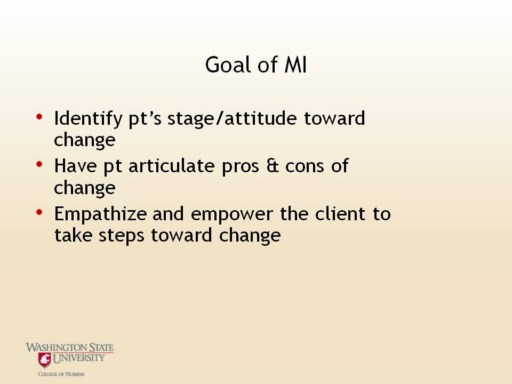| front |1 |2 |3 |4 |5 |6 |7 |8 |9 |10 |11 |12 |13 |14 |15 |16 |17 |18 |19 |20 |21 |22 |23 |review |
 |
The steps in the change as it pertains to MI are:
1.Identifying
the behavior
2.Identifying
the problem
3.Desiring
a change
4.Feeling
confident about at change
5.Making
the change!
As previously stated, new behaviors can be facilitated through MI by resolving conflict or ambivalence about changing from one behavior, to the new behavior.
Thus, motivational interviewing may be a method to facilitate more positive self-management among patients with chronic conditions who are challenged to engage in behavioral change.
An additional resource that health care professionals may find useful is: Rollnick, S., Miller, W.R., & Butler, C.C. (2008). Motivational interviewing: Helping patients change behavior. NY: Guilford Press.
Reference: Saha, P. Motivational Intervention: Approaching Behavior Change. Available athttp://www.google.com/search?q=motivational+interviewing&hl=en&prmd=ibv&ei=sMknTM_ |